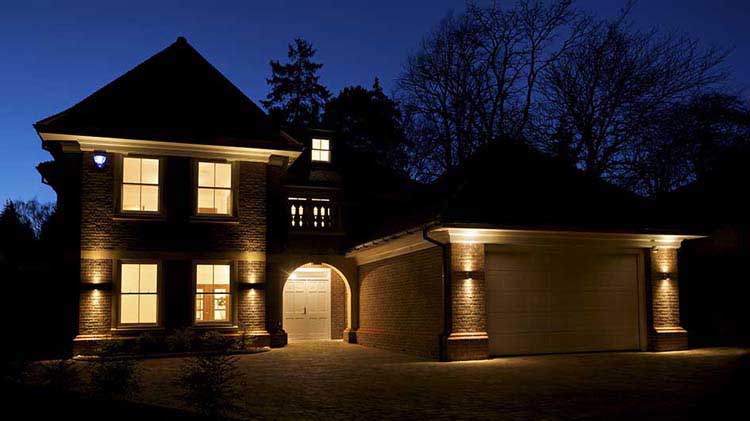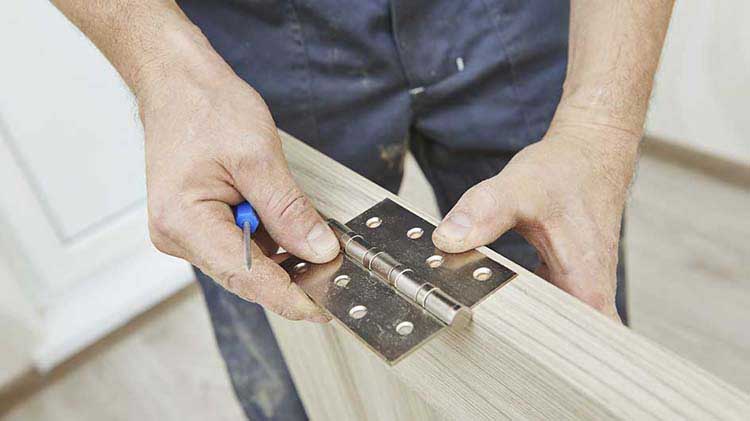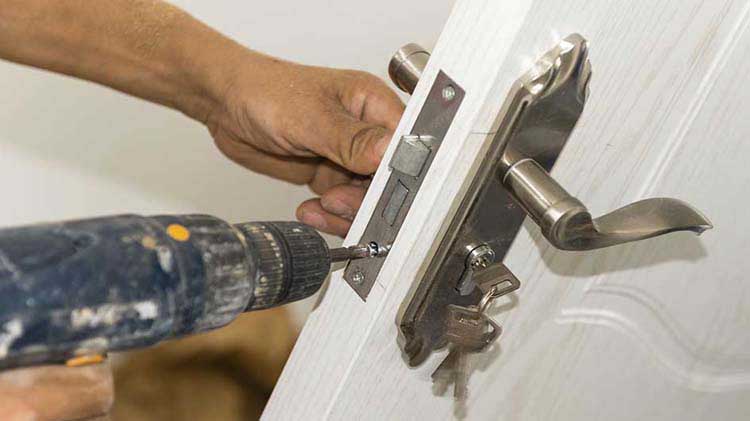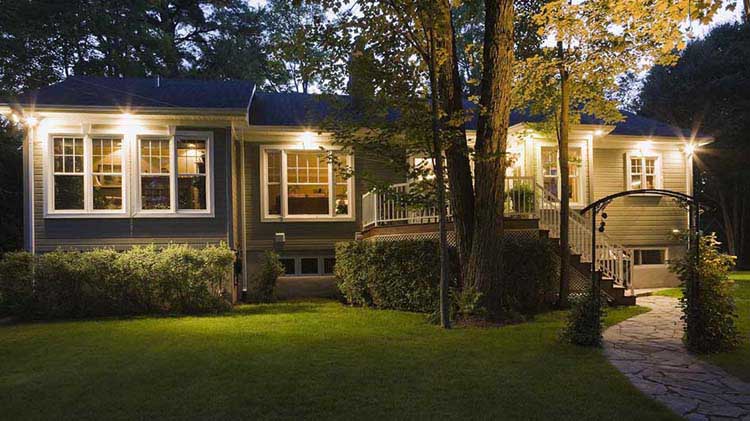Help protect your home and family with home security
Learn how the different types of home alarm systems can help improve your home security and maybe even get you a discount on your homeowners insurance.
Consider investing in a home alarm system for added home security and theft deterrence options. Taking the time to understand the types of security alarm systems available and exactly how they may improve your home security is important so you can purchase a system tailored to your needs and budget.
Types of home security systems
Alarm systems can be wired or wireless. They can be installed by a professional or you might decide to do it yourself. You also have the option of paying a security company to monitor the system. Here is some additional information that may help you decide what system will meet your needs:
Monitored or unmonitored security systems?
Monitored systems are those where a private company watches your system 24/7, alerting the police if something goes wrong and you can't be contacted. Many alarm systems offer a "self-monitoring" feature where the user receives alerts by phone, text, email or smart phone technology.
Monitored systems offer constant vigilance. They typically function in the following way:
- The system's sensors are triggered in some way, such as a door opening.
- The system waits 30-45 seconds to give the homeowner a chance to deactivate the system to prevent false alarms.
- If the alarm is not deactivated, the security system sends a message to the monitoring company over telephone lines or by a wireless device.
- The monitoring company receives the message and verifies the alarm, generally by placing a call to the home or homeowner's mobile phone. If they do not receive an answer or the proper passcode, the company calls the police.
- The police respond.
Unmonitored systems have on-site sirens and/or flashing lights that may alert your neighbors of a break-in, meaning that you'll be relying on them to contact police if you aren't home.
Hardwired or wireless security systems?
Many home security systems may have some or all of the following components:
- Control panel: All the operations of the alarm system are centered in this panel, including the connections to the central monitoring station, either through a phone line or cellular/radio means.
- Central monitoring station: If the system is monitored, and the alarm is set off, the control panel sends a message here.
- Touchpads: This is where the system is armed and disarmed. They should be placed near doors so they can be armed on your way out and disarmed after you return. Most work on a passcode system.
- Key fobs: Similar to your car lock/unlock fob, this will allow you to arm and disarm your alarm system from outside the premises without using a passcode.
- Sirens: A siren will sound an alert when an alarm is set off.
- Door and window sensors: These set off the alarm when a door or window is opened. Glass break sensors are also available and recommended.
- Motion detectors: Motion detectors are activated by movement within the protected room. There are various styles to meet the individual needs of the homeowner.
- Video monitoring: Surveillance video is an option with most systems at an additional cost. The images can be sent to the monitoring station directly, captured and stored locally and/or viewable online by computer or smart phone. Doorbell cameras are also an option.
- Alert panic buttons: The central station will be alerted in the event of an emergency situation that requires immediate response by the police. These buttons are also known as duress alarms.
- Carbon monoxide and water detection: Some monitoring systems provide carbon monoxide detection and water detection.
Hardwired home security systems use wires to connect components to the central control panel. These systems don’t rely on networks to communicate with the control panel. If your alarm system is monitored by a security company, it is more likely they will communicate with you on a phone line if an alarm is set off.
In the case of wireless home security systems, each component communicates with the control panel using Wi-Fi or cellular data. These types of systems may be affected if the network is down or has interference. They also use batteries, so it may be a good idea to check the different components regularly making sure they have power to function properly.
Tips for choosing an alarm company
If you're looking to get a house alarm system, do your research. Before calling any alarm companies, speak to the local police. Get an idea of how long it takes them to respond to a home security alarm after being contacted by an alarm company. Valuable time can be lost (as well as valuables themselves), which may influence your purchase decision. Next, ask them about fines for false alarms.
Get quotes from three different alarm companies in your area, if available, and compare detection coverage and features.
- Company certification. It’s recommended that the company that monitors your property be certified by Underwriters Laboratory, Factory Mutual or some other nationally recognized testing laboratory.
- Employee screening. When speaking to company representatives, ask them about the criminal screening process for their employees.
- Extra costs. Ask about extra costs to the monitoring fees billed by the companies, such as copies of alarm reports.
- Contractual agreements. Beware of long-term contracts from these companies, because they may be difficult to break if you decide to cancel service or move from your home.
- Safety guarantees. Inquire about warranties and safety guarantees.
- Equipment ownership. Verify whether the equipment is to be purchased or leased.
Other considerations
Even with the advent of wireless technology, many alarm systems still need a hard telephone line to dial out. Consider asking your alarm company exactly how the system will contact them in the event of a security breach. If you're using Voice Over Internet Protocol (VoIP) for your phones and internet, you may want to tell the alarm monitoring company, as transmission of alarm signals over these lines is often unreliable and other steps should be taken to ensure proper reception. If the hard line is still utilized, realize that many burglars know how to cut a telephone line before infiltrating a home. However, if the phone line is inaccessible and runs underground, the thieves can't tamper with the telephone line until after they have broken in which is too late for them. An alternative is to purchase a cellular alarm system, which will not allow thieves to tamper with the transmission of the alarm signal.
For more suggestions about practicing good theft deterrence and home security, read the guide to protecting yourself against home burglary.
Alarm systems and insurance discounts
Getting a home alarm system might not only help protect your family and property from burglars, it may also get you a discount on your homeowners insurance. Each insurance company is different, so available discounts may be specific to the insurance carrier you have. Consider talking to a State Farm® agent to see if you qualify for discounts related to fire, smoke, burglar alarms or other home monitoring systems installed in your house.
In addition, if you consider bundling1 your homeowners, renters or auto policies with State Farm, you may qualify for other discounts.




